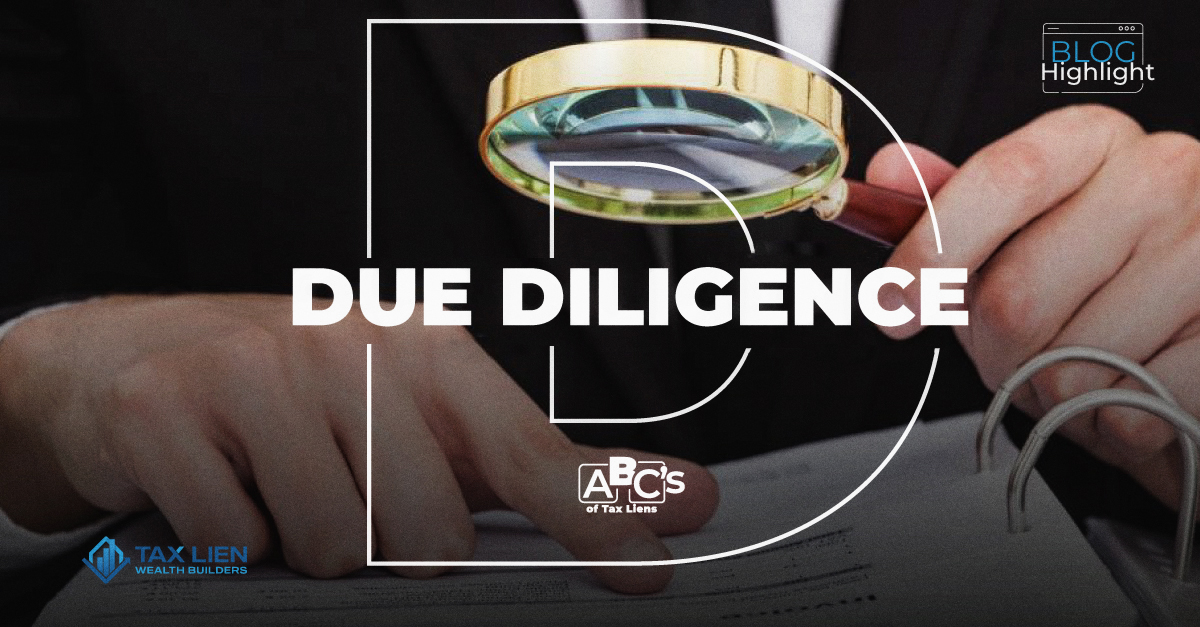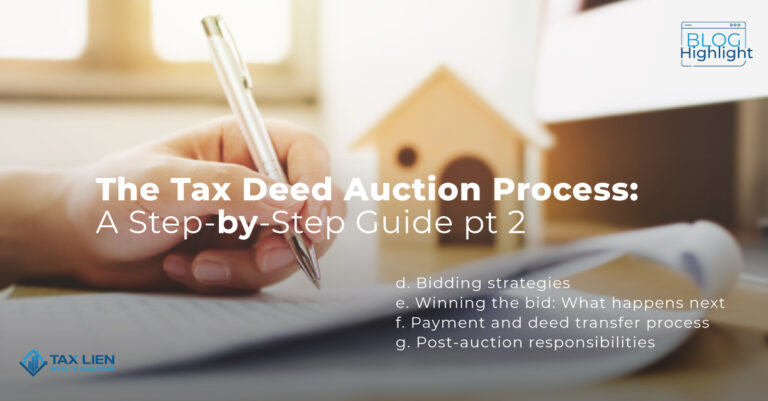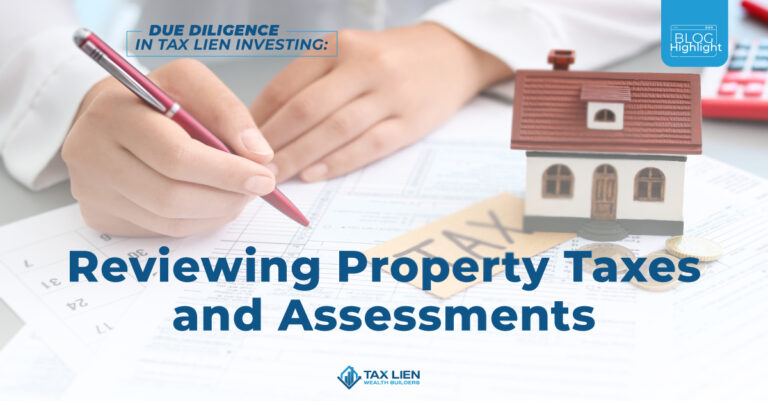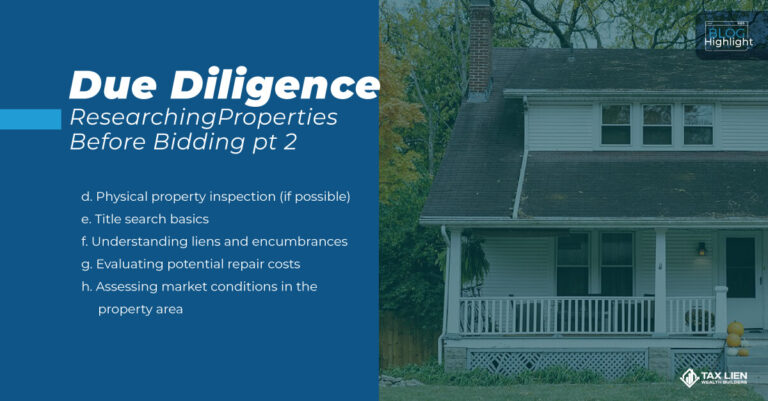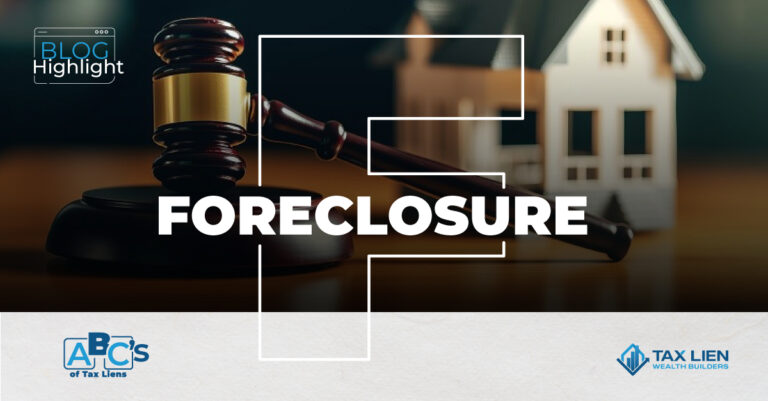How to Do Due Diligence When Investing in Tax liens
When venturing into tax lien investing, thorough due diligence is the key to laying the foundation for making informed investment decisions that can lead to lucrative returns.
As an investor, it’s crucial to meticulously research properties, assess their value, and understand the potential risks and local regulations governing this unique market.
Let’s delve into the key aspects of due diligence that every tax lien investor should prioritize:
Key Aspects Of Research
Property Research
Before participating in a tax lien auction, it’s crucial to thoroughly research the properties of interest. This includes understanding the location, size, condition, and any unique features or challenges associated with each property.
Gathering this information will provide valuable insights that can inform your bidding strategy and investment decisions.
Title Search
Conducting a comprehensive title search is a critical step in the due diligence process. This allows you to identify any existing liens or encumbrances on the property, which can significantly impact the investment potential.
Understanding the property’s title status is essential for assessing the risks and determining the feasibility of investing in a particular tax lien.
Value Assessment
Accurately assessing the value of a property is key to making informed investment decisions.
Consider factors such as the property’s market value, potential for appreciation, and the cost of any necessary repairs or improvements. This evaluation will help you determine the overall investment potential and justify the bid amount.
Redemption History
Investigating the redemption history of a property can provide valuable insights.
Understanding whether the property has a history of timely redemptions or repeated defaults can give you a better sense of the potential risks and opportunities associated with that particular tax lien.
Local Laws and Regulations
Tax lien laws and regulations can vary significantly by jurisdiction. As an investor, it’s crucial to thoroughly understand the local rules governing tax lien auctions, redemption periods, and any specific procedures related to tax lien investments.
Familiarizing yourself with these legal frameworks will help you navigate the process with confidence.
Redemption Period Awareness
Being aware of the redemption period is critical for tax lien investors. You should know the duration during which the property owner has the opportunity to redeem the tax lien.
This knowledge will guide your investment strategies and set realistic expectations for potential returns.
Inspection and Condition
Whenever possible, physically inspect the property or gather detailed information about its current condition.
Understanding the state of the property will help you assess potential renovation costs, marketability, and the overall feasibility of the investment.
Auction Participation Rules
Familiarize yourself with the specific rules and procedures of the tax lien auction you plan to participate in.
Understanding how bids are placed, minimum bid requirements, and any competitive dynamics can give you a strategic advantage during the bidding process.
Market Trends
Stay informed about local real estate market trends. Understanding whether property values are generally increasing or decreasing can influence your investment decisions and overall strategy.
Risk Assessment
Conduct a comprehensive risk assessment for each potential tax lien investment. Identify and evaluate potential risks, such as property deterioration, legal complications, or challenges in the redemption process.
This analysis will help you make well-informed decisions and manage risk effectively.
Research Aids
Professional Assistance
Seeking the guidance of professional experts can significantly enhance your due diligence process.
Real estate professionals, title search experts, or legal advisors can provide invaluable insights and guidance that can help you make informed decisions.
Budget Planning
Set a clear budget for your tax lien purchases. This budget should account for the potential bid amounts, additional fees, and any costs associated with the redemption process.
Careful budget planning will ensure that you operate within your financial limits and manage risk effectively.
Doing Due Diligence:
By taking the time to research, assess, and understand the various aspects of a potential investment, you can position yourself for long-term success in this dynamic market.
Remember, the more you know, the better equipped you’ll be to make strategic and profitable decisions.

